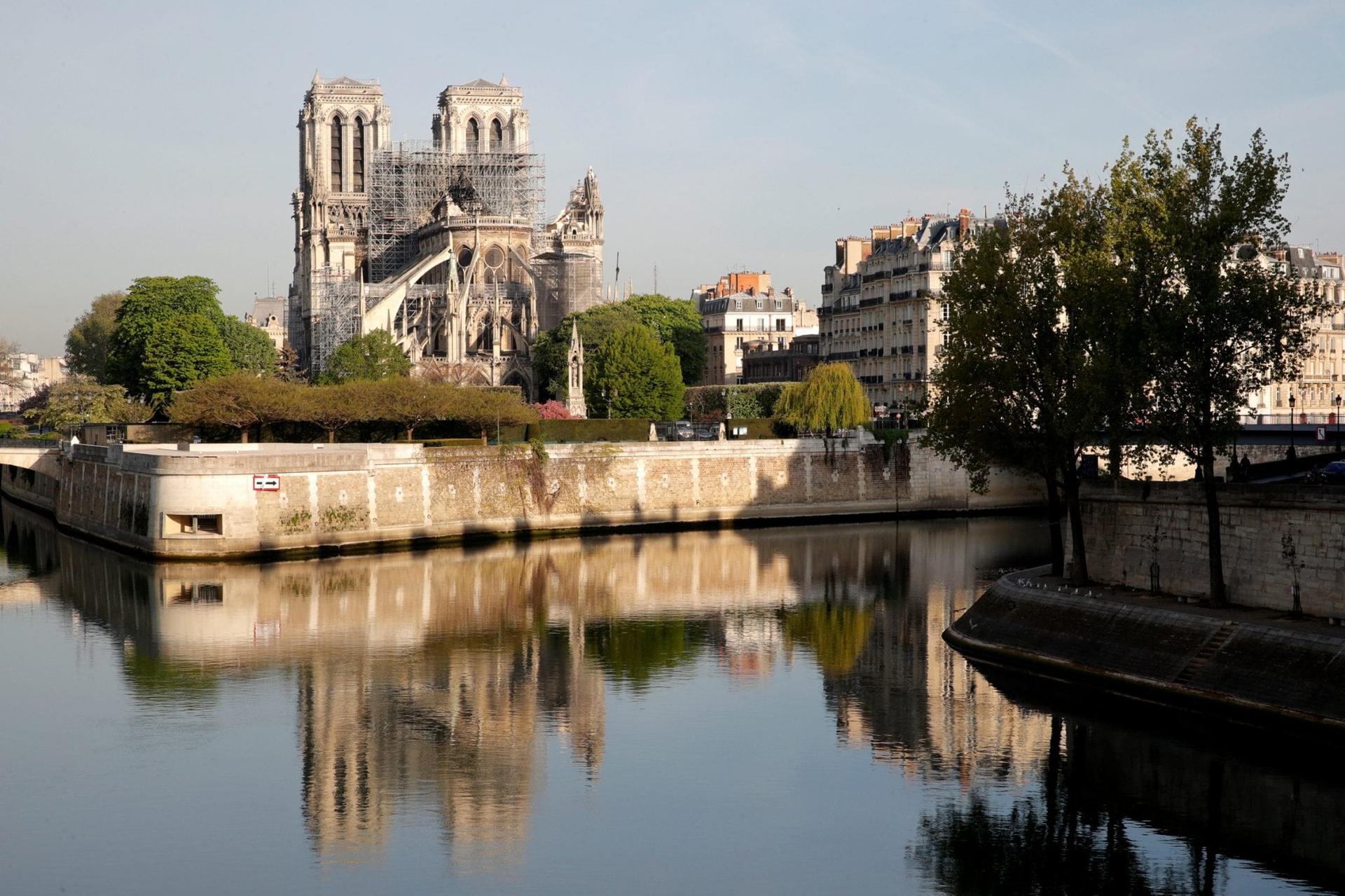NEW YORK — Nearly three months after a fire devastated Paris’s famed Notre Dame Cathedral, France’s National Assembly moved closer to enacting legislation to approve the restoration process and timeline for one of the world’s most beloved landmarks.
By a vote of 32 in favor, 7 against, and 8 abstentions, the country’s primary legislative body voted on Wednesday to adopt a resolution that establishes a national plan for accepting donations toward the rebuilding efforts and adheres to French President Emmanuel Macron’s intent to have the work done before Paris plays host to the Olympics in 2024.
This marked the second time the bill came before the National Assembly for consideration after a contentious hearing in May, which did not get the necessary votes to pass, and a vote by the French senate in June.
RELATED: French senate passes bill for preservation of Notre Dame’s original state
Notre Dame was nationalized in 1789 during the French Revolution, and remains the property of the French state. By law, the Catholic Church has exclusive use of the building, but the government covers the cost of building maintenance and repairs.
The April fire led to the collapse of the main roof of the 13th century monument and its famed spire, which was a 19th century addition.
France’s Minister of Culture, Franck Riester, re-opened the debate by recalling the goal of the proposed legislation, which is to “offer to Notre Dame a restoration at the height of the place it occupies in the hearts of the French and in the whole world.”
The bill establishes a national program that will collect tax-deductible gifts toward the restoration — and raises the ceiling to what could be deducted from one’s taxes to 75 percent, rather than the standard 66 percent.
RELATED: Small donors, not French tycoons, foot Notre Dame work bills
Further, the bill is retroactive, dating back to the actual date of the fire, meaning gifts given before the legislation is fully passed are still available for a tax benefit. While more than a billion dollars has been pledged from both private and corporate donors, during the debate over the new legislation it was noted only ten percent has been collected.
While debate has raged over Macron’s earlier mention that the new construction efforts should provide a “contemporary architectural gesture,” the latest draft of the approved text removes the amendments related to the restoration design efforts and instead creates an administrative public institution to be overseen by the Minister of Culture which will handle such matters.
The bill will now head to the Senate, the upper body of the French parliament, for further debate before making its way back to the National Assembly for final passage.
Despite the back and forth in the legislative process, construction workers have had a near round-the-clock presence at the cathedral since the April fire. Last week, wooden structures were installed atop the cathedral and alongside the flying buttresses to provide additional structural support.
RELATED: Paris archbishop celebrates first Mass in Notre Dame since fire
In June, Paris Archbishop Michel Aupetit celebrated the first Mass inside the cathedral since the fire to mark the annual celebration of the consecration of the Cathedral’s altar.
Wearing a hardhat and a mitre, the archbishop did not mention the fire but instead paid tribute to the building as a site of Christian heritage, rather than an ornament of the state, saying that if Jesus were removed it would suffer from a spiritual collapse.
“The cathedral is born of the faith of our ancestors,” he told the small crowd of thirty individuals on hand for the occasion.
“This cathedral is born of the Christian hope, which perceives well beyond a small self-centered personal life to enter a magnificent project at the service of all, projecting well beyond a single generation,” said Aupetit.
Follow Christopher White on Twitter: @cwwhite212
Crux is dedicated to smart, wired and independent reporting on the Vatican and worldwide Catholic Church. That kind of reporting doesn’t come cheap, and we need your support. You can help Crux by giving a small amount monthly, or with a onetime gift. Please remember, Crux is a for-profit organization, so contributions are not tax-deductible.










